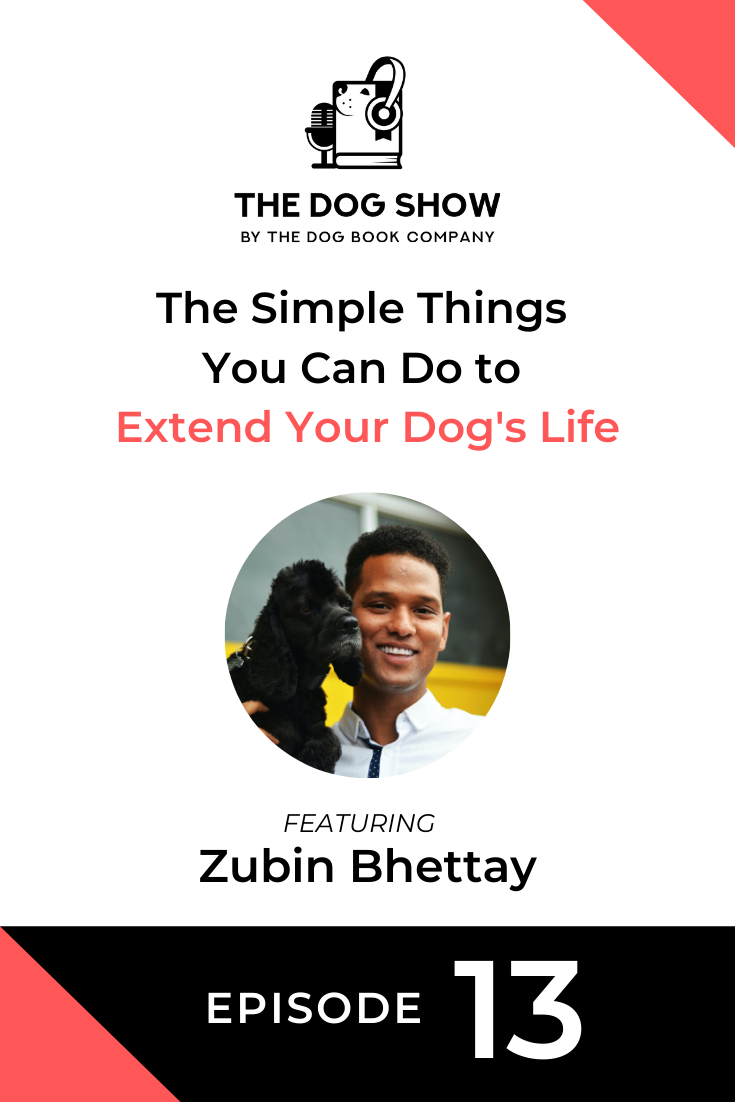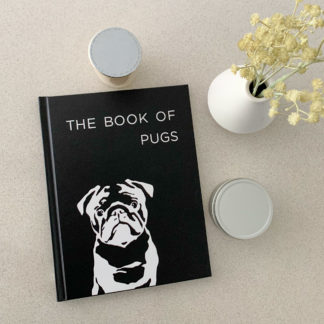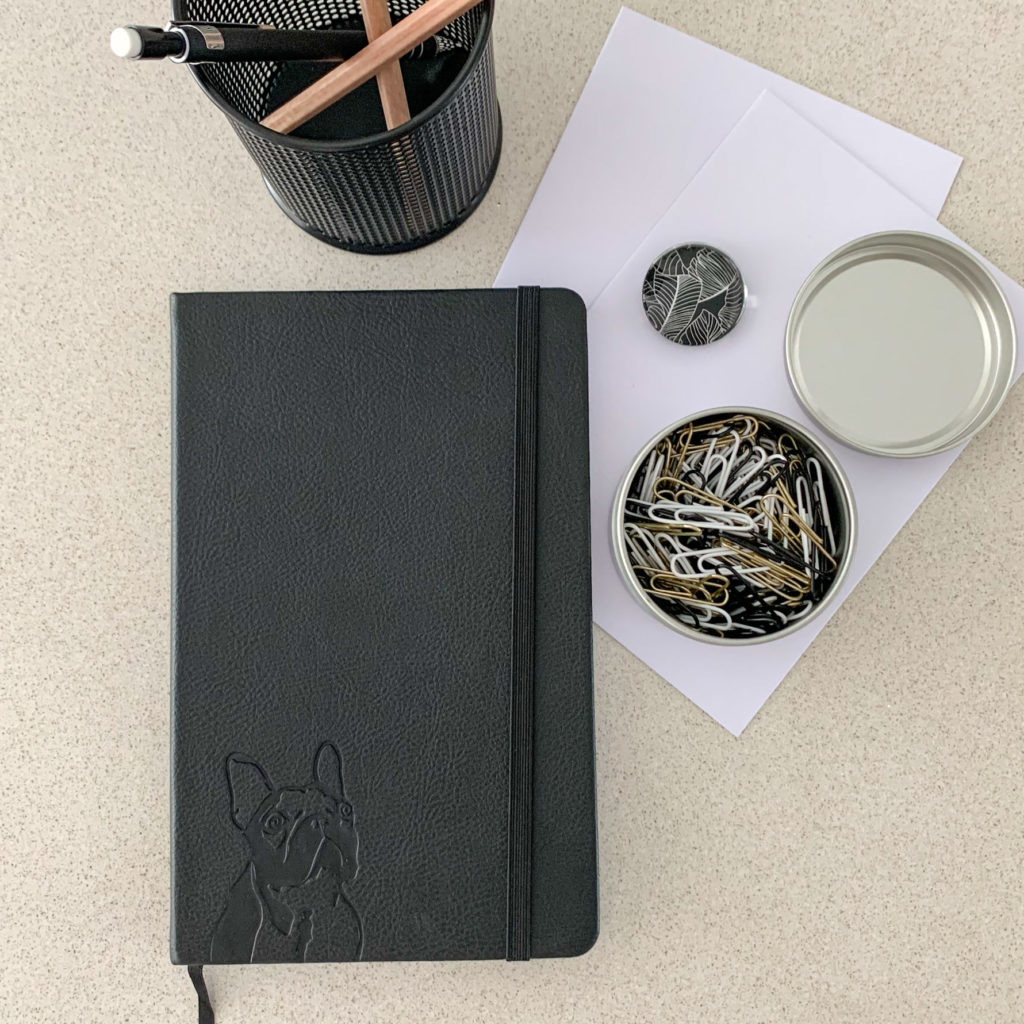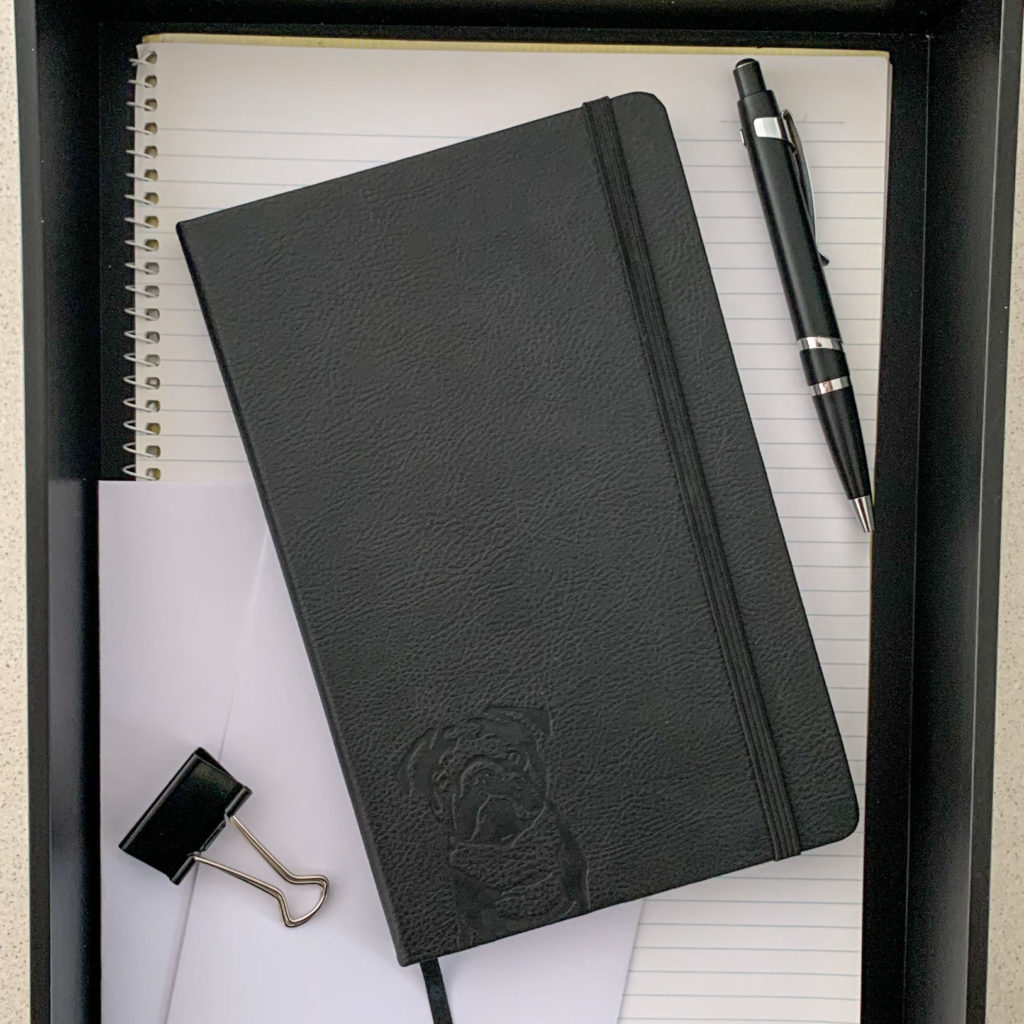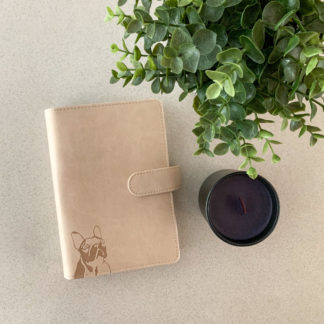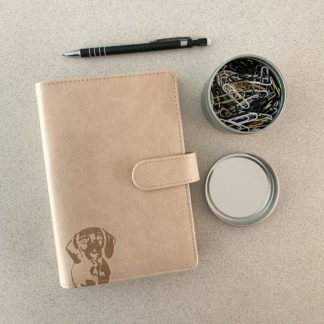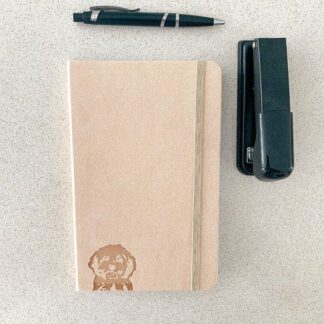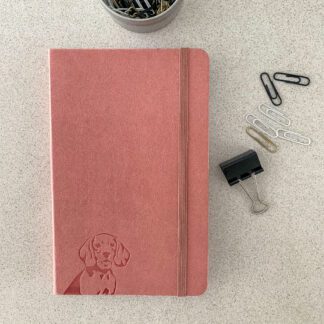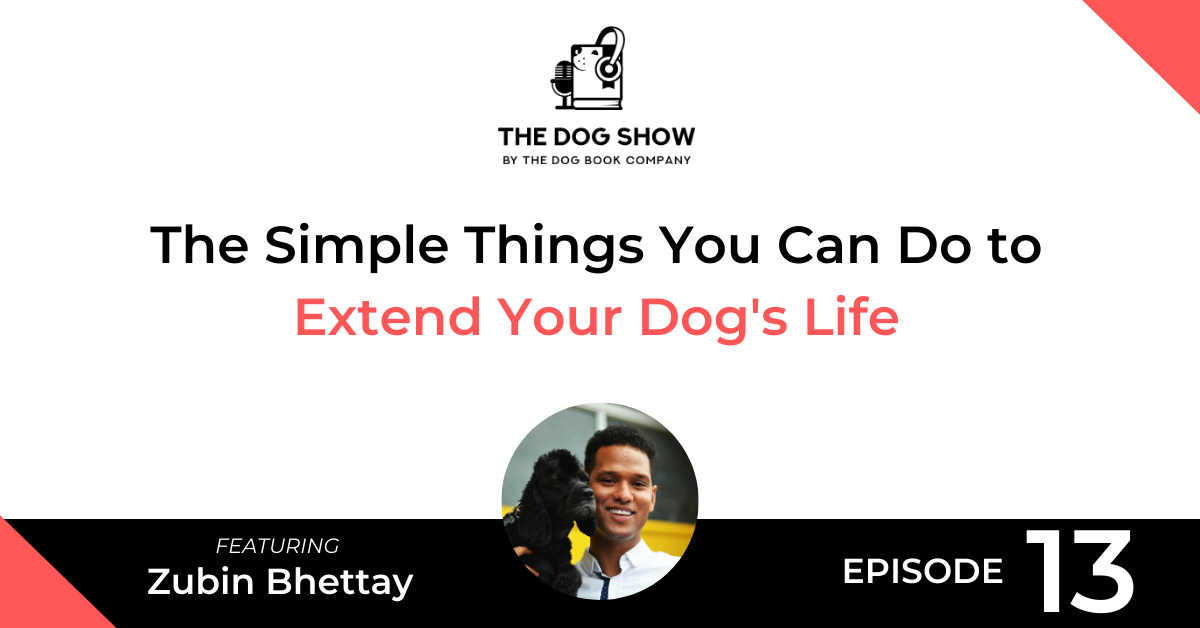
Wouldn’t you love to extend your dog’s life? Even if it is for a few extra years, it’d be worth it, right?
Well, that’s the mission of Zubin Bhettay’s business, Fuzzy Pet Health – they’re helping extend the lives of pets all across the United States.
Zubin is the Co-Founder and CEO of Fuzzy Pet Health, a subscription-based pet health company that provides everything your pet needs to live longer, healthier, and happier lives; including; preventive meds, virtual access to vets, and much more.
In this interview, we discuss pet longevity; including a range of simple things you can do to extend your dog’s life and enhance their wellbeing.
Listen
Watch
Read
Will: In this episode of “The Dog Show,” I speak with Zubin Bhettay. Zubin is the co-founder and CEO of Fuzzy Pet Health. Now, Fuzzy is a subscription-based pet health company that provides everything your pet needs to live longer, healthier, and happier lives, including preventative meds, virtual access to vets, and much more. In the interview, we discuss pet longevity, including a range of simple things you can do to extend your dog’s life and enhance their wellbeing. Zubin, welcome to “The Dog Show.” Thanks very much for being on the show today.
Zubin: Thanks for having me. I’m excited to chat.
Will: Yeah. So, let’s start by hearing a bit more about your dog, Mo. What type of dog is it?
Zubin: Yeah, Mo is a little black Cocker spaniel. She’s going on eight years old now. She was the runt of a litter and was kind of abandoned on the side of the road, which is why we were fortunate enough to get to rescue her. I’ll give you a little bit more on her. She is a scavenger. She is always battling with weight issues. She’s always getting into trouble, whether it be fighting with skunks or raccoons. And yesterday she managed to get us into a fight with a catti [SP]. So…
Will: When you say she’s battling with weight issues, is she overweight, underweight?
Zubin: Yeah. Overweight. She’s a scavenger. So, she’ll just get into…she’s super food motivated. She’ll try and get into all kinds of food. We’re good now. We learnt a lesson the hard way that we couldn’t leave any food lying around anywhere in the house because somehow, even though she’s not really much more than a foot tall, she was able to get on top of dinner tables, and coffee tables, and things of all sorts. So, we have a few stories of her getting into anything from chocolates to big bags full of supplements that were way too rich for her. So, ended up having stomach issues there and probably a few other things too.
Will: Yeah, that’s crazy. Is she an inside dog? Does she stay inside most of the time or…?
Zubin: For the most part, yeah, she sleeps indoors, but we’re lucky we have a garden where she gets to roam around and be active in. It’s impossible for her to get out, so she won’t be outside in the road or anything like that. But I would say that she’s an inside dog. She also spends a lot of our time… Pre-COVID, she spent a lot of her time in our office, so she was surrounded by other dogs or humans that were very, very happy to spoil her and feed her treats.
Will: Okay. Cool. Is there anything about the cocker spaniel which is unique or I’m always interested to hear about different dog breeds. And, you know, you only really hear about subtle things when you actually speak to an owner that’s got one.
Zubin: So, apparently they’re water dogs, so they love the water. And we take her to the beach. We try and do it a couple of times a week. And she’ll just…it can be freezing cold. And I don’t know if you know much about San Francisco and how cold the water is over here, but it’s cold. And she’ll just run into the water no matter how cold it is and just love swimming around. So, that’s probably one thing. Her breed is predisposed to like ear…they’ve got big floppy, hairy ears, right? And so, her breed is predisposed to ear infections, but fortunately, we’ve kind of found ways to make sure that that doesn’t happen. We haven’t had one for about four years now. And interestingly, I don’t know if this is a cocker spaniel thing, but she is super cuddly, very affectionate, likes her independence too, but she’s not that much of a fan of babies and kids. But I think she feels fairly intimidated by something that’s the same height as her.
Will: Okay. I guess at eight years old, as well, maybe she always been that way or she may be just becoming a bit more grumpy as she gets older.
Zubin: No, she’s always been like that. So, maybe she is also getting more grumpy. Who knows?
Will: Have you ever had any other dog breeds or would you say cocker spaniels is your favorite dog breed?
Zubin: So, I had a Rottweilers.
Will: Wow. A sort of a difference.
Zubin: Yeah. I mean, I’m from South Africa and in South Africa, we have bigger dog breeds. And so, a Rottweiler and a Boerboel, which is a South African breed. Rottweiler Tessa was the gentlest of beasts. I always thought she was a lap dog and super loving. They get a bad rap, which is unfortunate, but they’re just super smart and very affectionate dogs, and also the cutest puppies. We also had a golden retriever. And our first dog as a family was a dog called Tiger, which was a mixed breed. He was the smartest dog that you could imagine. And when I speak about kind of getting, having a gate, and having access to the roads, Tiger had a roaming range of about five miles radius. And so, he’d be seen in downtown Cape Town, which was about five miles away from us, and just roaming around. And then, obviously, he’d always come back home every night, but he just had a big roaming radius and a super-smart dog. So yeah, we got a big one.
Will: I hear wonderful things about Cape Town, like the landscapes and stuff. It’s one place on my bucket list I’d love to see. I’m a little bit cautious, I guess, because I don’t know a lot about South Africa in terms of, like, I’ve never been there, but it sounds like a beautiful place.
Zubin: I’m biased but Cape Town is, in my mind, the most beautiful city in the world. You have beautiful beaches, unbelievable landscape with Table Mountain, and then Winelands close by, but just generally a beautiful place. Great people. I mean, South Africa as a country is grappling with some societal issues as a whole, but being from Australia and following, again, cricket, there are few better places to watch a game of cricket than [inaudible 00:06:09] Cricket Ground.
Will: Yeah. I can imagine that would be nice. I think there’s a lot of similarities with the climate actually in South Africa and Australia. Maybe that’s what draws me to it.
Zubin: Yeah, great surf too.
Will: Yeah. All right. So, let’s talk about Fuzzy. So, Fuzzy Pet Health is your business. And it’s dedicated to making vet care more accessible to people all across the United States using technology. So, you’ve got Nap. You’ve got the website where people can sign up for your subscription service. What got you into this industry? Obviously, you’re a dog lover for years, but what kind of got you led you down the path of working in the vet care industry?
Zubin: Yeah. Nothing in my career spoke to me moving into the pet industry. My background is in technology and started off at Xerox and then ended up going into marketing software or mobile software and mobile networks. So, I found myself walking in the industry because of my dog, Mo. I ended up having to rush her into emergency back clinic one day and found the experience of getting veterinarian care pretty challenging, long waiting room, wait times, eventually seeing veterinarians, incredibly high cost of care. I think anyone that’s a pet parent at some point has witnessed or experienced a shock veterinary bill. And we realized that there was an opportunity to use technology to be able to make exceptional veterinary care more accessible to folks.
I think Daisa already proves that more proactive care in human health leads to a longer lifespan for us humans. The same thing applies to pets. We’re all hearing about this humanization of pets. Our pets are now our kids, and we’re treating them like a part of the family and them being living beings. The same thing rings true, where if you’re treating them in the right way, and you’re being proactive about the level of care that you’re able to deliver to them, then you can almost double a pet’s lifespan. And just think about that, right? What would you give to double your pet’s lifespan? And it isn’t that inconceivable to fathom. So, we believe that there’s a path to be able to do that.
Will: Yeah, I imagine that’s probably the dream of all dog owners to be able to double their pet’s lifespan because the thought of losing, you know, your best friend and the one that you love is hard to deal with if you’re a new pet owner. So, one question I had about the way your service works, like, for example, I mean, what I understand, you can get on-demand kind of advice from vets, so, online or through the Apple or whatever it is. Say, for example, I had an emergency situation. So, let’s say my dog’s eating something, and I’m not sure about whether it’s going to be, you know, potentially harmful to them. So, I jump on Fuzzy and try to get some advice. What would the next step be? What would happen from there?
Zubin: It really does depend. And that’s essentially why we designed the service in the way that we did. So, we are focused on longevity of pets. We also are focused on doing that through better access to care. So, I think every pet parent has had this moment where your dog’s eaten something or it’s behaving funny or something is up. And unfortunately, a lot of the time that happens late at night or at a time where it’s difficult to be able to contact your veterinarian. And even sometimes, you’ll be calling up your veterinary clinic. And the first thing they’re saying to you is, “Come in, and we’ll be able to give you an answer.” And so, no pet parent wants to be the irresponsible pet parent, and people want to be able to make the right decision as it relates to their pet’s health.
But the moment you go into an emergency back clinic, you’re out-of-pocket for a couple of hundred dollars at the minimum. So, for us, we believe that a digital interface means that we’re more accessible than ever before to be able to get expert information and advice from a veterinarian. So, you hop into our website or you hop into our app. You initiate a consult or start chatting with our team. And as you start chatting with our team, our team will be able to get some information. So, what was ingested? What was the volume? Typical things like chocolate or gum or medications or some incorrect food type that could be toxic. So, what was ingested? What was the volume that was ingested? We go through some calculations and then essentially that’s a basic triage.
So, that basic triage is, yes, this is something that shouldn’t have happened, but you’re okay. Your pet will be fine. You got to wait this one out with them. It will take 12 to 24 hours. We’ll continue to check in over that period of time. And at that point, the pet parent kind of feels this sense of safety or security that they’ve gone to seek out advice, they’ve got expert advice, and they’ve made the right decision. There will suddenly be instances where the pet has ingested something that shouldn’t have been ingested. And that then means that we will refer them into a veterinary clinic if there is a need for further treatment. And that clinic could be a full subspect clinic. It could be an emergency clinic. It could also even be a veterinarian coming to their home. It really does depend on the actual type of care that your pet needs.
The other example that I’ll give is sometimes people are out in the middle of nowhere, right, and they’re hours away from the closest veterinarian. So, they’ll hop into our interface, and they’ll start engaging with our team. And at times, they’ll have to say, “I don’t have access to a veterinarian. What can you do to help me treat for this today?” And there’s certainly some opportunities and some treatments that can be provided by our veterinarians. I’m not a veterinarian. And so, I’m not going to walk through those specifically today, but in those instances, there suddenly are things that can be done to help support a pet parent and navigate through the actual need at that point in time.
Will: Yeah. There must be a huge benefit. I guess I took it for granted. I live in the city. So, you know, if I needed to see an emergency vet, there’s one, you know, within 15 minutes max, if I needed to see one, but in remote areas, it must be much more challenging. So, having access to that expert advice. I mean, there’s a lot of advice on the internet and stuff, which, you know, give or take, you don’t know where it’s coming from, but if you can actually get a direct line to a vet it sounds hugely beneficial.
Zubin: Now, that the code restrictions have been lifted for the most part, construction is back up and running. And so, there are probably three or four houses in a very small radius that have been completely redone and remodeled. So…
Will: That’s all right. I couldn’t actually hear it, but maybe it was in the background there for you. Cool. Okay. So, what you spoke about earlier is like doubling the life of your pet. And I’m sure every owner wants to hear about how it’s possible to do little things day to day or, you know, in their lifestyle, which can help extend the life of their dog. So, what can people do to extend the life of their dog?
Zubin: Yeah, I think the key thing that we’re looking at is pet health has for a long time kind of dovetailed what the research…because there’s a minimal amount of research done or less research done in animal health than there is done in human health. And so, a lot of the research from human health can be brought down into how we care for our pets and how we can extend the lifespan of our pets. And the key drivers around the extension of life in humans are, what do you eat, how are you keeping fit, and what are the proactive things that you’re doing to stay healthy, right? And so, like nutrition obviously is key. Activity, and exercise is key. And then what are the things that you do on a daily or weekly basis to stay healthy? And actually one of the most interesting things that I hear from most veterinarians is keep your pet active. Brush their teeth. Clean their skin, right? Those are three of the simplest things to do, but actually also high leverage. It’s incredible how much of an impact keeping your pet’s teeth clean are because that’s where everything’s being ingested. And it actually has a direct impact on the internal organs of the pet.
Will: Interesting. So, when you say cleaning their teeth, are you physically cleaning their teeth, or are they doing dental chews, maybe both? I don’t know?
Zubin: Best practice from veterinarians is to say, “Hey, if you can brush once a day, awesome. If you’re brushing any less than three times a week, then you’re actually not doing anything.” You’re not even touching the sides because the tarter buildup actually has then begun. And you’re not really getting rid of all the tartar buildup, and it just continues to build up. So, ideally, what you’re doing is brushing three to four times a week and also supplementing that with things like dental chews. You’ve got to look for the dental chews that have the right accreditations too. I’m blanking on it right now, but there is an organization that actually vets what the right products are and gives the right accreditation, and those are the ones that are going to be most efficacious.
Will: Okay. Interesting. Sorry, what was the third part you said? So, obviously, exercise, dental health, and then…
Zubin: Nutrition.
Will: Nutrition. Yeah. Okay. Interesting.
Zubin: Can I interject? And what do you feed your dog, and how much do you feed your dog. So, the key thing is I mentioned when I explained my dog that she kind of has weight issues, for us, it’s just something that we measure so much. And I’m very conscious of it in that dogs and cats have something called and veterinarians use something called a BCS to measure dogs and cats similar to BMI in humans. And it goes as a scale of one to nine, right? And so the ideal is four to five. Ideally, four is perfect. And there’s data, there’s studies out there that actually show that if you’re at a six or seven, it’s really impacting the quality of life of your pets. And so, the reason why we started Fuzzy is because my dog has issues with something called luxating patella where her kneecap basically shifting inside out. It’s something that’s very common in small breeds, and I believe in Frenchies too, right?
So, the issue is, is that if she’s overweight, that weight is putting more stress on her bones and joints. If that’s putting more of a stress on her bones and joints, there’s a high likelihood that by the time she gets to, let’s say 12 or 13 years old, she is able to walk less. And then it basically just has an impact on the amount of activity. And if it’s having an impact on the amount of activity, then that will impact the amount that she’s able to eat, because she’s not able to keep her weight. So, it’s all interconnected, but ideally, you want to keep your pet at the right weight and the right body mass index or BCS, body condition score, they call it. And essentially, that will help prolong your pet’s life. And most importantly is optimize their quality of life too, right? You don’t want your pet to be… For me, for instance, I remember having a conversation with our veterinarian where they said, “She’s healthy, for the most part, but do you want your dog to be 12 or 13 years old and have to have wheels on her back legs for her to be able to get around?” And, I mean, obviously, we all know the answer to that, right? So, we’re trying to mitigate that and help her live as long as possible.
Will: Yeah. The luxating patella it’s a sad one to say. Our Frenchie does sometimes, like she has basically loose patellas or loose legs as I call them. But sometimes when I’m walking, like you’ll notice that it’ll just pop out or whatever it does. And like they’ll start to hop a little bit. And it happens every now and then for her. So it doesn’t go to the point where it’s like a big issue, but, you know, I can imagine weight management is a huge thing. Actually, I had Ronaldo Webb from Pet Plate on the show. I think… I can’t remember. I saw both of your photos on the same event somewhere when I was researching for the show, but he was talking about how important the measurement of food is, and which is kind of what you hinted towards as well. Cool. So, are there any common mistakes that you think owners make when it comes to, I guess, shortening the life of their dogs? So, we talked about extending it, but there’s probably some day-to-day things people might do that they think, you know, is harmless or not really doing too much, but it could be having a longterm contribution to the shortening of life.
Zubin: I would say, for the most part, it’s lack of properly vaccinating your pets, lack or overfeeding. Like I think it’s something like 68% of pets are obese, and obesity has a direct link to kidney or heart issues. So, that obviously shortens the lifespan of our pets, for sure. And then a lack of proactive care for things like ear infections or eye infections or skin infections. And unfortunately, a lot of that is actually driven by the friction that’s involved in veterinary care. So, I mean, we as a company offered in-home veteran care, right? Like the most low friction type of care that you can have. You sit back, have someone knock on your door, a veterinarian comes in, and delivers care to your pet, as simple as that. You’re sipping on a glass of wine while it’s happening or having a beer. And even then, there was still friction involved in getting that veterinary care, and there’s cost involved.
So, what people do is they end up putting it off for a very, very long time. And so, I’ll give you a perfect example. The number of folks that come in through our telehealth consults, where they speak about allergies, that lead to skin infection. So, if you treat the allergy, you won’t get the skin infection, which means that you don’t need to provide your pets antibiotics, which means that you don’t kind of limit their health, or in cats, UTIs, urinary tract infections that create blockages, that actually leads a significant amount, a non-trivial number of deaths in cats, but they don’t know if it’s something that is an issue. So they hold off until it’s something that’s so severe that they then have to go into a veterinary clinic, and they’re then faced with a bill of thousands of dollars. But actually, you could have addressed it for a very small amount if it was dealt with preventively. So, putting off healthcare, overfeeding, and proper vaccination and preventive treatment of illnesses.
Will: Yeah. If I was to summarize what you just said, then it sounds like taking steps to prevent, I guess, bigger issues is what you’re suggesting, and I can relate to the allergy thing. So, our French bulldog has both food and environmental allergies. And that doesn’t sound like to the average person, it doesn’t sound like much, but it can result in so many things, as you said, skin infections, you know, swollen pores, infections in all sorts of like nooks and crannies and crevices in their body, in their wrinkles, in their tail and all sorts of areas, right? And then from a food perspective, they can get, you know, gastro issues if they’re eating the wrong foods. So, by doing small things, like you mentioned, like managing the allergies day-to-day with medication and feeding them the right amount of food and the right types of food and everything like that, that can prevent needing a big vet bill where they might need to stay overnight or whatever else. So…
Zubin: Preventive care will save the average pet parent seven and a half thousand dollars through the course of the life of their pet, just preventive care, just doing the things day-to-day. I’ll give you an example. I was chatting with our veterinary team just this morning, and we had a patient that came in where the dog had skin allergies and was then chewing their paw to a point where the paw was swollen and then bleeding and then needed to go into a veterinary clinic. And their bill was three and a half thousand dollars to address for something. And all it would’ve taken was anti-histamine or proper allergy treatment preventively and it would have totally eliminated that.
Will: I love what you said earlier in the interview about relating the progression of dog health to human health. And I think as something that is a common theme I’m noticing through a lot of the interviews I’m doing for this podcast is that everything to do with pets and dogs is kind of a little bit behind what humans are at, but we can learn a lot from that progression and just concentrating on, you know, the simple stuff, right? Exercise, you know, dental health, and diet, and everything like that. It sounds like, you know, it’s simple, but a lot of dog owners may not think about, you know, those simple things as well.
Zubin: I think we’re starting to become more in tune with it. If you think about the people that are now adopting or getting pets, mainly millennials that are first-time pet parents, right? And what we found, I don’t know. I grew up with pets all along, but when we got Mo, I remember being like, “Oh, there’s this living thing that I am now responsible for. What do I feed her? What am I supposed to do with her poop? What’s her daily schedule like? Am I treating her in a way that’s going to keep her healthy? Is she happy, right?” Like if you think back to kind of 15, 20 years that human-animal bond or even the thought about, ‘Is my pet happy,” didn’t really factor into the realm of conversation all that much. And now we’re starting to see more of that. And so, there’s similar trends that we’re starting to see that have been brought from…
And the gap is closing in the time, taken from innovations to go from human into pet. But in human, we were looking at DNA kits a while ago and how our DNA can help inform things like allergies or genomics or other things that could help us live longer. There are things like diet and how do we think smarter about our diets and how that can help us live a healthier life. And then people talk about the mind-gut connection too in human health. There are things like activity and regularity of activity. So, even if it is just getting 10 to 15 minutes a day, getting your pet out, and giving them that kind of sensory exposure is a really positive indicator to that quality of life and their health longer term. And so, what I think we’ll see is a continued… And nutrition is another version of that, right?
Like you mentioned Pet Plate. On the cat side, there’s [inaudible 00:23:34]. There’s companies like Ali and The Farmer’s Dog and [inaudible 00:23:38] now too. And so, we’re seeing people become a lot more conscious about what we’re feeding our pets, how caring for them, the level of activity that they have, and the health care that we’re providing to them to really extend their life span. So, all the things that we are doing for ourselves we’re trying to find ways to be able to do that for our pets. We can mass part of that humanization of pets in our world.
Will: Well, Zubin, thanks so much for all the fantastic advice you’ve given today about extending a dog’s life. And I think there’s some really valuable takeaways there for owners that are looking to just increase the wellbeing and health of their dogs and have them for longer. So, where can people find out more about Fuzzy and what you’re doing, and what would it look like if I was a new dog owner that wanted to sign up for Fuzzy?
Zubin: Yeah. Our website tells you a lot about the products and services that we make available. So, in a nutshell, we are a telehealth platform that includes tools to keep track of essential pet health information, such as you can track your weight in our app. You can track your pet’s weight and nutrition, food intake, their skin health, their energy. So, you can track all of these things on a day-to-day basis, and actually then see trends over time and use that as an indicator about your pet’s wellbeing and their life and quality of health. So go into our website, create a profile, download the app, get access to our telehealth services, chat live with our veterinary team, and start taking a proactive view and capturing data along that journey of your pet’s health and wellbeing.
Will: Perfect. Well, I’ll include all the links to your website and the app store as well in the show notes.
Zubin: It sounds great. Thanks so much. Thanks for having me on here. It’s great to be a part of the show.
Will: I’m glad to have you. Thanks so much.
From Our Store
-
French Bulldog Coffee Table Book – The Book of Frenchies
From: EUR €33.53 Add to cart -
Dachshund Coffee Table Book – The Book of Dachshunds
From: EUR €33.53 Add to cart -
Pug Coffee Table Book – The Book of Pugs
EUR €33.53 Add to cart -
French Bulldog Notebook – A5, Hardcover, PU Leather, 100gsm Lined Pages, Bookmark (Three Colours)
EUR €19.56 Select options -
Dachshund Notebook – A5, Hardcover, PU Leather, 100gsm Lined Pages, Bookmark (Three Colours)
EUR €19.56 Select options -
Pug Notebook – A5, Hardcover, Black PU Leather, 100gsm Lined Pages, Bookmark (Three Colours)
EUR €19.56 Select options -
French Bulldog Planner – PU Leather Exterior, Metal Loose Leaf Ring Binder, 100gsm Paper (Two Colours)
EUR €36.33 Select options -
Corgi Notebook – A5, Hardcover, Black PU Leather, 100gsm Lined Pages, Bookmark (Three Colours)
EUR €19.56 Select options -
Dachshund Planner – PU Leather Exterior, Metal Loose Leaf Ring Binder, 100gsm Paper (Two Colours)
EUR €36.33 Select options -
Vizsla/Weimaraner Notebook – A5, Hardcover, PU Leather, 100gsm Lined Pages, Bookmark (Three Colours)
EUR €19.56 Select options -
Cavoodle Notebook – A5, Hardcover, Black PU Leather, 100gsm Lined Pages, Bookmark (Three Colours)
EUR €19.56 Select options -
Beagle Notebook – A5, Hardcover, PU Leather, 100gsm Lined Pages, Bookmark (Three Colours)
EUR €19.56 Select options
